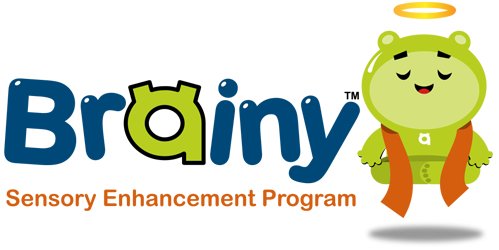Abacus is an age-old tool that is used to carry out mathematical calculations. Its toy-like appearance attracts children and hence can be used from a very young age to start their brain development program towards mastering mental maths.
Using an Abacus works like an exercise for the grey cells, making the brain stronger and sharper. Hence the earlier a child is exposed to it, the better it is for their long-term intellectual growth and development. A child who is trained on an abacus from an early age will be a high achiever in all fields and hence it is prudent to give them this head start in life.
How it Works
The abacus consists of a beaded frame with vertical columns that represent place values and rows that represent numbers. The beads can be moved around to carry out calculations.
In the beginning, a child uses a physical abacus to manipulate the beads to carry out arithmetic operations, but with constant practice, they can picture it in their mind and carry out mental calculations accurately and quickly.
Using an abacus is simple, systematic and based on a set pattern and formula. Many manuals and videos are available on how to use it and hence can be taught at home by a parent.
What All Operations Can Be Carried Out On An Abacus Training
Simple as it may look, the abacus has a vast range of applications and the complexity of operations done on it increases as a child grows and gets more proficient in using the abacus.
At a young age, the abacus is used to teach basic counting, after which a child can carry out elementary mathematical operations like addition, subtraction, multiplication and division. With continuous use and proper guidance, the child gets better acquainted with the tool, allowing them to do bigger and more complicated calculations like decimals and cubic roots.
What Age Should Kids Begin With The Abacus Training?
Today’s children are born with a higher intellectual capacity and hence they are able to learn and grasp concepts at a much earlier age than what was thought possible before.
Ideally, kids as young as 4 can be introduced to an abacus, where they learn the concepts of numbers and counting through a fun playful method.
If your child befriends numbers at an early age they are less likely to be afraid of it as they go to higher classes and learn more complex topics.
However, as a parent, you might face the following challenges while teaching your child the abacus:
1. Checking On Incorrect Methodology
In spite of all the material available from which you can learn the concept of the abacus and try to teach it to your child, you might not be able to do it the right way because it is a skill that takes years of practice to be able to master it enough to tutor someone else.
Hence you might benefit by enrolling your child in Abacus classes like Brainy where trained facilitators teach abacus courses which are designed to ensure proper learning of mental arithmetic for kids.
2. Adjusting to Packed Daily Schedule
A child’s timetable tends to be hectic from the time they wake up to the time they sleep. Trying to balance school, sports training and other creative outlets get more and more hectic as they grow up.
Therefore, it is prudent to teach them abacus at an early age where they have a less demanding routine. However, if your child is already in middle school you can consider taking up short Abacus courses at Brainy during their vacations, where they have spare time to learn a skill which will help them ease their work pressure once the academic session is on.
3. Improving Lack Of Concentration
With a generation that likes everything at the click of a finger, it is nearly impossible to hold their attention long enough to teach them new concepts. As a parent, you might struggle to find the correct way to bridge the gap and teach them new concepts.
It might help to sign them up for classes like Brainy, which has trained facilitators to teach abacus courses and mental arithmetic to kids and can support the learning they do at school and home.
4. Removing Dependency On Gadgets
Long gone are the days when we opened encyclopaedias, dictionaries and log books to help us with our academic work. Today, Google is the answer for everything under the sun and even basic calculations are done on the calculator.
Hence convincing your child to take up a simple tool that requires physical and mental skills to operate, might be a challenge. However, this is a bridge that needs to be crossed so that your child can enjoy the benefits of the skills they will learn along the way as they master the abacus.
Abacus can be considered a basic life skill that must be taught to each child because of its multitude of benefits. It touches and improves every aspect of your child. Their concentration, logical thinking, creativity, cognitive skills as well as memory is enhanced exponentially because abacus sharpens both sides of the brain. This not only leads to better academic performance but also shapes them into more confident individuals which stays with them for life and makes their future more secure.


.jpg)
